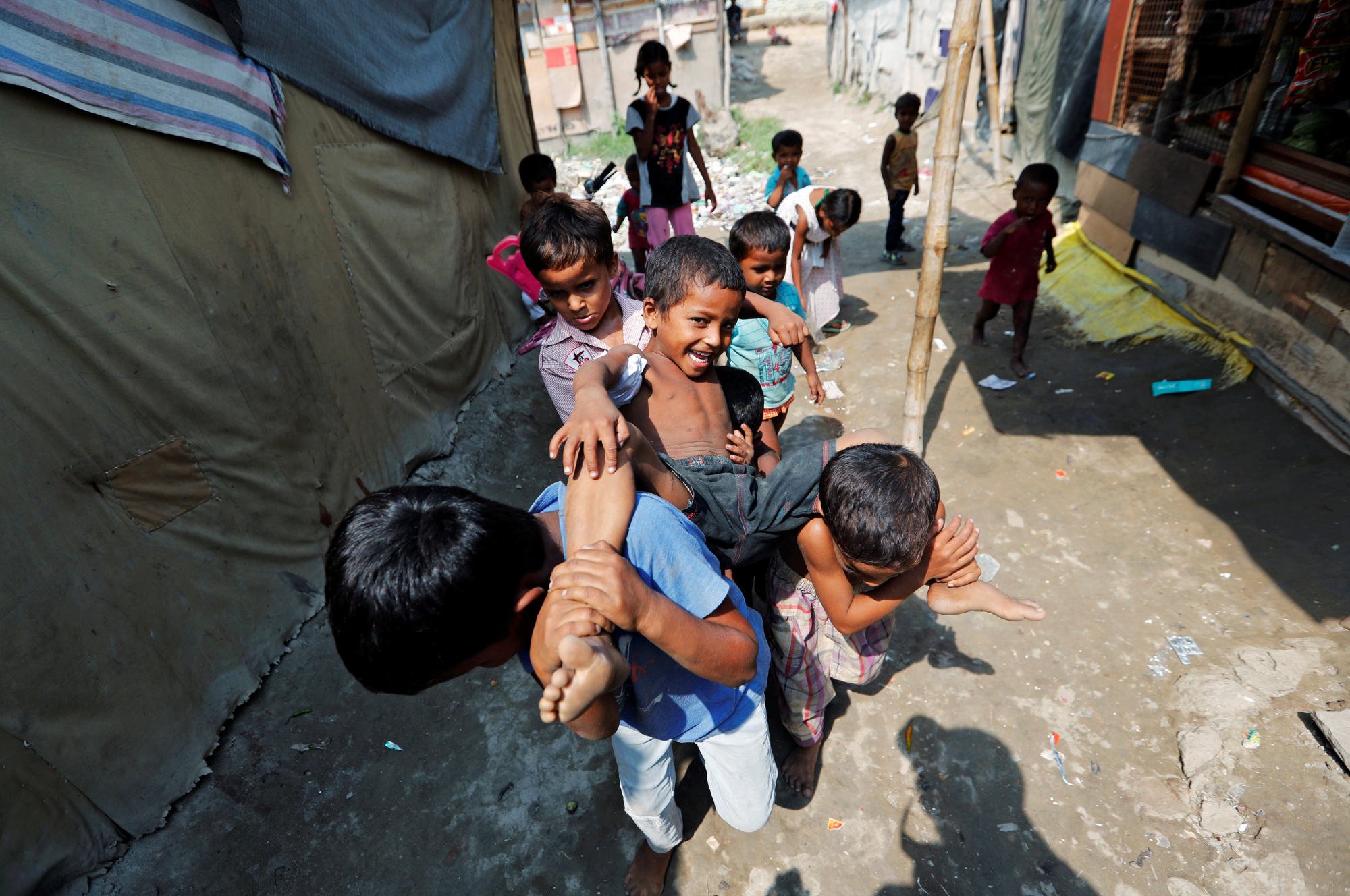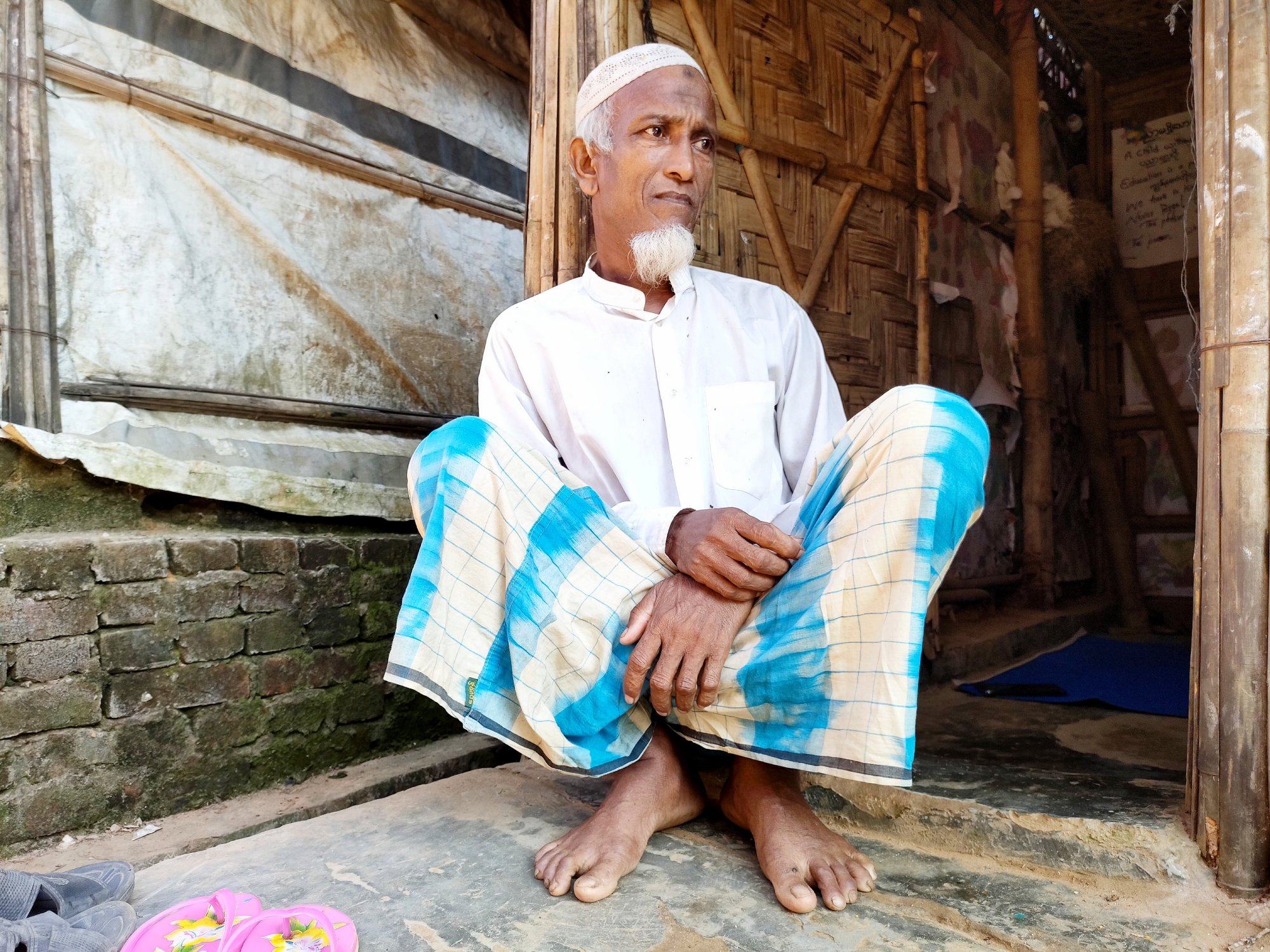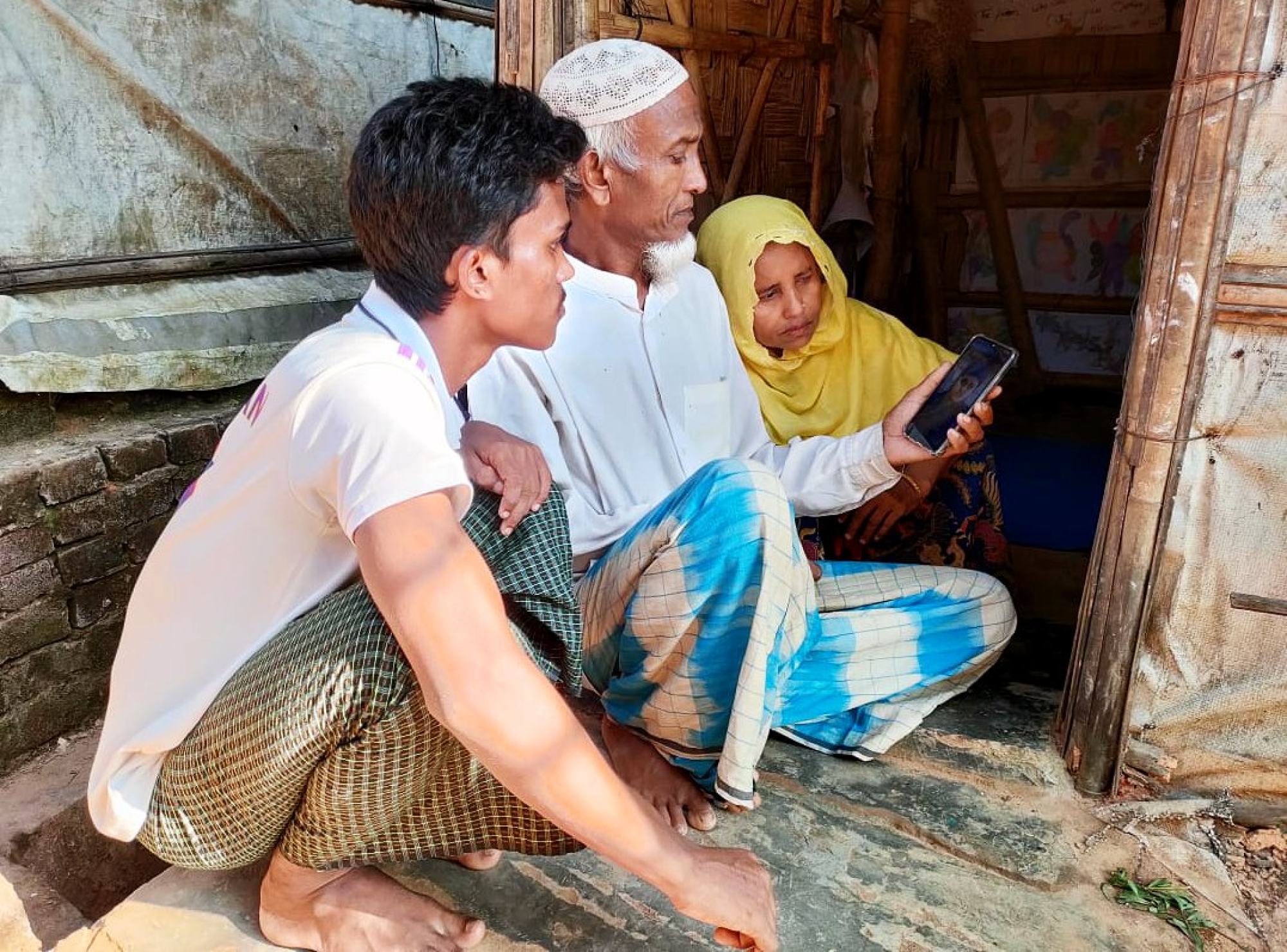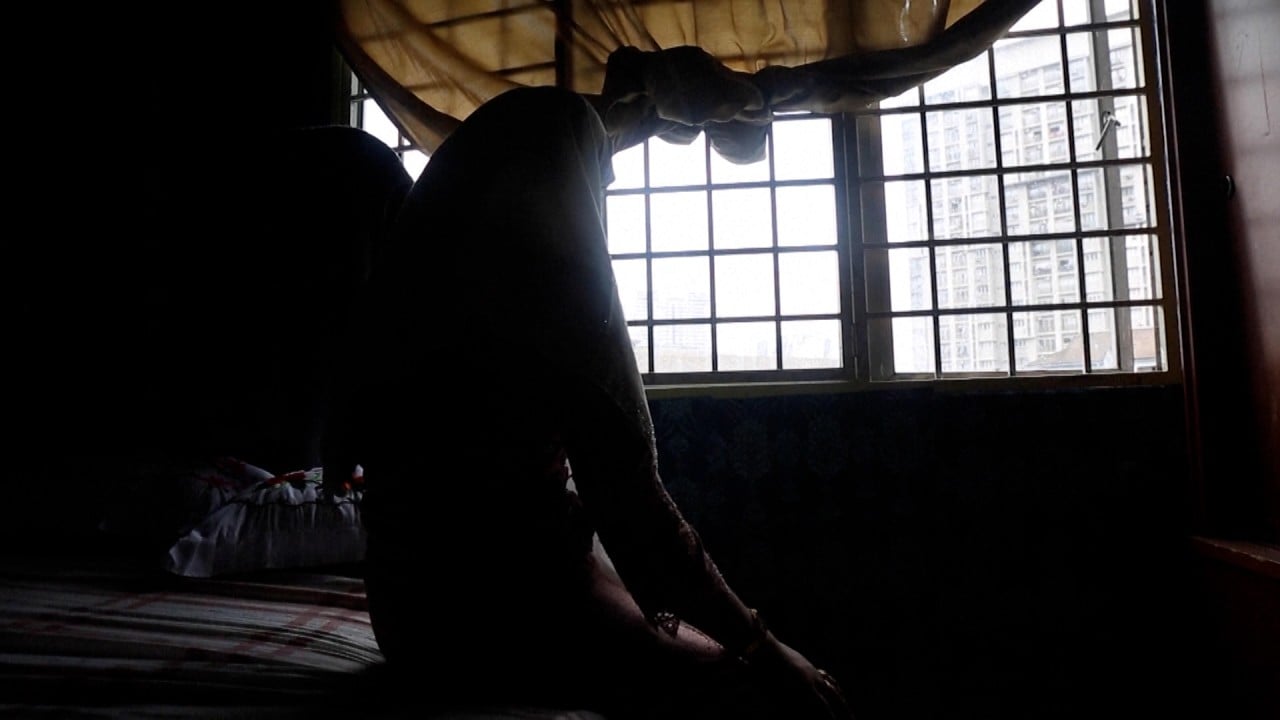Rohingya women trafficked to India on promises of ‘a good life’ face threat of indefinite detention
Rubina, who recently turned 15, said the perpetrator was a “much older” man with two wives and children, and was also a commander of a Rohingya militant group.
“He had been asking for my hand in marriage for months, but my parents refused because I was too young. So, he attacked me, saying he would make sure no one else in the camp would want to marry me,” Rubina said.
Forced out of Myanmar ‘like dogs’, Rohingya refugees face persecution in India
Forced out of Myanmar ‘like dogs’, Rohingya refugees face persecution in India
Too impoverished to hurriedly arrange for the customary dowry to marry off their daughter to any Rohingya boy in the camp after the assault, the only plausible step for them was to hand their daughter to a broker who agreed to help her cross the border to reach India in December.
For Rohingya girls like Rubina who are trafficked from Bangladesh to India, the first predators to take advantage of them are often those from within their own community – trusted friends and relatives.
One of Rubina’s uncles paid the broker a sum for helping the girl reach West Bengal. He is now waiting to marry her off and will ask her future husband for a larger sum in return, justifying it as “travel expenses” in an interview with This Week in Asia.
“I do this to save girls who were sexually abused and give them a good life in India. No one would marry them back in Bangladesh,” said the uncle, who did not want to give his name.
He admitted “bringing” two other Rohingya girls from Bangladesh to India over the last three years. One of them was abducted and repeatedly sexually assaulted after reaching India, and later “sold” for marriage to a Rohingya man in New Delhi.
Highly vulnerable
Rubina was seven when her family of 11 fled persecution from Myanmar’s Rakhine state to Bangladesh, alongside about 742,000 others of the Rohingya Muslim minority. In desperate search of refuge following a brutal crackdown by armed Myanmar forces, they would join about 200,000 other Rohingya who had already reached Bangladesh.
More than half of these refugees are girls and women, according to the United Nations High Commissioner for Refugees (UNHCR), which has warned that they are highly vulnerable to sexual and gender-based violence.
Sabber Kaw Min, an India-based Rohingya community leader and founder-director of the Rohingya Human Rights Initiative, said after the 2023 World Food Programme ration cuts, Rohingya refugee women and girls in Bangladesh could barely afford food, let alone other necessities, including menstrual hygiene products.

“Many might wonder: how naive must Rohingya girls be, to get so easily lured by traffickers! I want them to ask themselves what life must be like for a Rohingya refugee woman, who cannot even dream of purchasing a bottle of hair oil with their allowance of US$8 per month.
“Furthermore, Rohingya women who survive sexual assault are ostracised by their own community in the Bangladesh camps. How can we blame them, then, for giving up everything in pursuit of the possibility of some normalcy, some stability, a glimmer of love?”
For the last five years, the Indian government has been trying to deport Rohingya refugees back to Myanmar, describing them as illegal immigrants and a security threat with links to Muslim extremist groups.
‘I feel trapped’: Rohingya girls forced into abusive marriages in Malaysia
‘I feel trapped’: Rohingya girls forced into abusive marriages in Malaysia
Ujjaini Chatterji, a Delhi-based lawyer who works on issues of forced displacement, said although India was not a signatory to the UN’s 1951 Refugee Convention and had no formal refugee policy, the Rohingya in India “cannot be termed as illegal migrants at all”.
Chatterji explained that India’s home affairs ministry issued a circular in March 2019 setting out the standard operating procedure that must be followed in all cases of “foreigners claiming to be refugees”.
“It defines a refugee as someone who has a well-founded fear of persecution on account of factors such as race, religion and ethnic identity,” Chatterji said.
Trafficked Rohingya girls are justifiably afraid to seek help, Min noted, considering the very real threat they face of being arrested for illegal immigration and detained indefinitely.
Detained indefinitely
The UNHCR says there are more than 21,000 Rohingya refugees living in India, with over 500 of them being held in detention and holding centres across the country, according to a fact sheet released by the refugee agency in November 2022.
Meenakshi Ganguly, deputy Asia director at Human Rights Watch, said Indian authorities had failed to protect the rights of Rohingya refugees, often “threatening to arbitrarily detain and deport them”.
“Rohingya women and girls in the refugee camps in Bangladesh are at severe risk, both because of the humanitarian crisis and the threats of sexual assault … Hoping to head to safer shores, many of them fall prey to people smugglers,” she said.
India must probe arrests of Rohingya Muslims, cease crackdown: rights group
India must probe arrests of Rohingya Muslims, cease crackdown: rights group
Hamida Khatoon, 21, is one such victim. Trafficked to India from Bangladesh’s Kutupalong refugee camp by a broker in December 2022 under the pretext of “marriage to a good man”, she was arrested the next month in the Indian state of West Bengal.
She has been living in a government shelter for minor girls in a West Bengal village ever since.
Chatterji, who argues against the indefinite detention of Rohingya refugees in India, said many Rohingya remained in these children’s shelters even after they turned 18.
“Therefore, in the absence of any formal charges against them or a defined punishment term, Rohingyas in these shelter homes are often detained indefinitely – violating the Indian constitution,” she said.

Hamida is allowed to speak to her parents on the phone for about 10 to 15 minutes every fortnight, according to her father Shamin Rahman, who is in Cox’s Bazar.
“She cries profusely over the call, saying that she is miserable there. Being a poor refugee, I begin crying too because I can never answer her when she asks me when she can come back home. It agonises me deeply, to not be able to reassure her even though I am her father,” said Rahman, 50.
Chatterji said the shelters did not have sufficient mental health resources, “especially for those suffering from such aggravated trauma of being trafficked”.
A former senior official of the West Bengal Commission for Protection of Child Rights (WBCPCR), the state government’s panel responsible for preventing the violation and abuse of child rights in West Bengal, told This Week in Asia that the commission treated all children under their care equally, including the Rohingya refugees.
“We [WBCPCR] even went to the Supreme Court, the apex court of India, to demand the protection of Rohingya children’s rights … but our request went in vain,” the official said on condition of anonymity, citing the sensitivity of the issue.

A father’s appeal
Although a reunion with their only daughter seems like a distant fantasy, Hamida’s parents and two brothers have not given up hope, with several activists and rights groups advocating for their cause.
It is a chilly afternoon in Cox’s Bazar, but Hamida’s father’s face grows warm with tears as he looks at a photo of his daughter’s UNHCR refugee identification card on his small mobile phone – one of few tangible images he has of her.
“We cannot sleep or eat whenever we think of her. All we do is pray to be able to meet our dear daughter again,” Rahman said.
“We request the international community and the Indian government to reunite all Rohingya parents like me with their children who have been kept away from us.
“Please help all the Rohingya daughters who have been taken away from us in the name of a better life come back home – this is a father’s appeal.”
*Names of all the Rohingya refugees in this story have been changed to protect their identities
Additional reporting by Mohammed Rezuwan Khan in Cox’s Bazar


